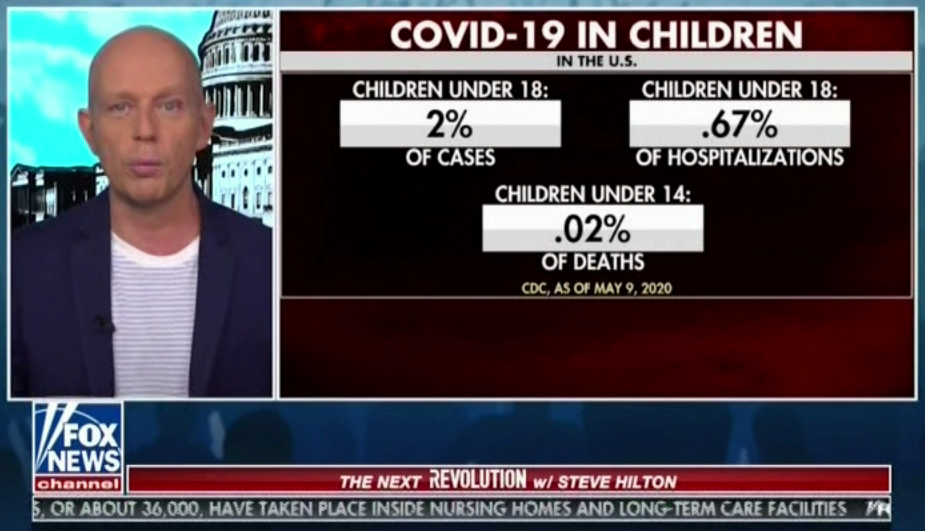Like all of our Covid-19 responses, the early decision to close schools was reasonable in the face of our complete ignorance about the disease. The reflex to protect children was - and is - correct and honorable.
However, we now know, and have known for quite some time, that children are neither particularly susceptible to, harmed by, or likely to transmit the virus. We also know that keeping them out of school is detrimental to them emotionally, educationally and often physically as well. At least as importantly, keeping them out of school binds at least one parent at home. In an unfortunately large number of families, this means unemployment, poverty and all their attendant ills, both familial, social and economic.
Here are just a couple of examples of a broad and growing base of evidence showing kids are at almost vanishingly small risk:
From "CORONAVIRUS: HUNTING DOWN COVID-19":
"Children under 10 are less likely to get infected than adults and if they get infected, they are less likely to get seriously ill. What is interesting is that even if children do get infected, they are less likely to transmit the disease to others than adults. We have not found a single instance of a child infecting parents."
-- Kari Stefansson
CEO of deCODE genetics in Reykjavík, which has studied the spread of COVID-19 in Iceland with Iceland’s Directorate of Health and the National University Hospital.
From "Stop Fear-Mongering: Kids Are Safer From Covid-19 Than Everyone Else":
In The Netherlands, experience has found: “The decision to reopen schools is based on a wide range of research which shows that young children are unlikely to pass on the virus or develop serious symptoms themselves, according to Jaap van Dissel, head of the public health institute RIVM. ‘There are no clusters in which schools would appear to be a hot spot,’ Van Dissel said. ‘And the closure of the schools has had no impact on the spread.’”
Switzerland, the Netherlands, France, Australia, United Kingdom and Germany are all finding similar results. This significance of this is not just a preponderance of the evidence, but that the same conclusion is being reached by a wide variety of international sources vastly reduces the likelihood of political bias or preconceived notion being determinative.
